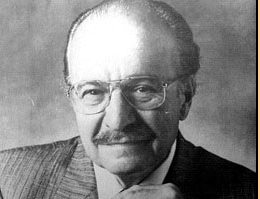Harry Hyman (Hy) Bloom was the son of a tailor but he was much more interested in the sound a stereo needle could create.
As a young man Bloom was fascinated by sound. According to a biography on the website of the Ottawa Country Music Hall of Fame, where he is an inductee, he was building microphones in elementary school. At Lisgar Collegiate he repaired radios, built his first amplifiers and even his school’s public address system. This love of sound would become his lifelong passion. He would go on to found his own sound business and a recording studio. Bloom died on July 19 at age 96.
After high school Bloom headed to New York City where, as his obituary says, he haunted recording studios and radio stations and started experimenting with 45 records and and 12-inch LP’s.
Back in Ottawa, he continued to learn his trade behind the counter at Orme’s Music Store and then at the National Research Council. With the experience he had gained, Bloom began a company called Soundmaster Bloom Sound Enterprises in 1939 and ran it out of his parents’ Kent Street home.
The business grew and Bloom moved to a new location at 283 Bank St. where he stayed for the next 25 years. During this time Bloom patented and started producing sound equipment, eventually selling more than 30,000 Soundmaster amplifiers.
He also opened a small recording studio in Ottawa and one of the first musicians he put down intake was the Ottawa Valley country music legend Orval Prophet. Bloom’s studio became something of a hangout for local musicians.
All of this activity prompted another move, this time to 386 MacLaren St., where he stayed until 2012 when the building was closed because of asbestos. His business did not reopen.
Bloom had one more gift for the people of the national capital. Over the years, he was hired to provide sound equipment to events that included concerts and speeches by prime ministers and visiting dignitaries. And he made hundreds of recording of moments in local history. These were donated to the City of Ottawa Archives.
Harvey Glatt, the founder of the Treble Clef and Bass Clef music businesses, along with CHEZ-FM, was a regular user of Bloom’s services.
“Starting in 1957, we put in a lot of concerts in high school auditoriums and then we moved to the Capitol Theatre. For many of these concerts, Hy did the sound. And many of these concerts, I found out later, he recorded,” Glatt remembered.
“We also used his recording studio quite a bit. In the early years when I was managing people like Bruce Cockburn, Neville Wells and a group called The Children. I still have a few of them.”
Bloom told the Ottawa Citizen in a 2012 interview that “I realized I was recording history — not many people were doing that then.”
Included are recordings of: a 1963 concert by Johnny Cash; poet Irving Layton; Lorne Greene during the Second World War; speeches by Pierre Trudeau and a teen-aged Alanis Morissette singing O Canada on Parliament Hill.
In a eulogy at Bloom’s funeral, former Soundmaster employee Dan Meloche praised Bloom as a consummate businessman but a better community person.
“As a man of languages, he also introduced me to the German word menschlichkeit. The quick definition is “humanity,” but as Hy explained, it is more an obligation to community to which we are all responsible. I am privileged to have been part of the community that started in the shop and expanded outward,” Meloche said.
“For Hy, the key to community seemed to be our stories. He loved hearing stories, and he loved telling stories. When business was slow, Hy would tell me stories, and I loved every one of them.”
Meloche also noted how Bloom had befriended and helped a family of Vietnamese immigrants settle in Ottawa and they became his adopted family.
After Bloom’s business closed he retired but, as he told the Citizen, “I miss the work. I miss the people. It’s too quiet here.”







